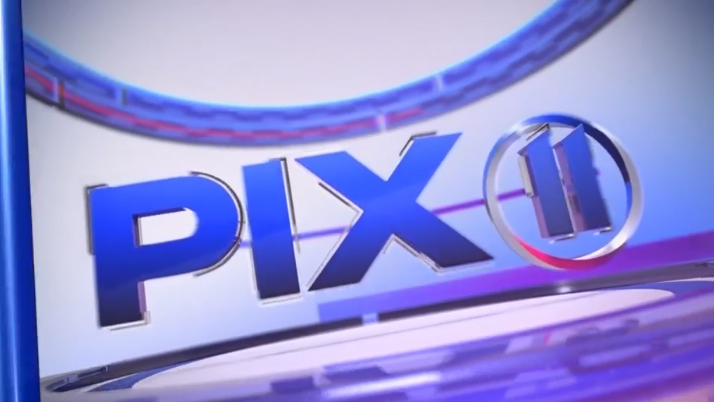Battle of the Titans: Comcast and Nexstar at War Over Retrans Fees in NYC
At the center of the dispute is Mission Broadcasting's WPIX-TV, which has local marketing agreement with Nexstar

The smarter way to stay on top of broadcasting and cable industry. Sign up below
You are now subscribed
Your newsletter sign-up was successful
Every regulated industry wants just one thing from its regulators, a fair advantage over its competitors. This certainly seems to be playing out between industry titans Comcast Cable Communications, Inc. and Nexstar Media, Inc., and their fight over millions of dollars of retransmission fees in New York City.
On July 1, 2021, Comcast hit first when it filed a Declaratory Ruling petition with the FCC. Comcast wants the FCC to rule that Nexstar, which has a local marketing agreement (LMA) with Mission Broadcasting, Inc., the owner of WPIX-TV New York, should be attributed with ownership of WPIX and thus its holdings exceed the 39% national audience cap of the FCC’s multiple ownership rules. Comcast argues this outcome is needed because Nexstar either has de facto control over WPIX or exercises excess “influence” over the station.
Adding punch to its request, Comcast further asserts that Nexstar violated its promise to the FCC during the 2019 Nexstar-Tribune merger. During the merger, Nexstar represented that it would divest WPIX, owned by Tribune, to stay under the national ownership cap, and that it would not provide any LMA services for the station post-transaction. After the Nexstar-Tribune merger closed, however, Nexstar nevertheless retained an option to repurchase WPIX after divesting it to Scripps. Presumably this was done in case the national ownership cap was increased by the FCC or Nexstar divested other stations allowing it to acquire WPIX. When this didn’t happen, Nexstar assigned its option to Mission, which then exercised the option to buy WPIX, and then entered into an LMA with Nexstar. That assignment included copies of the Nexstar-Mission LMA and following public notice was approved by the FCC without any opposition by Comcast or any other cable company.
Things hit the fan when Nexstar, which does not own a television station in the NYC DMA and is thus otherwise allowed to negotiate retransmission carriage terms for third-party stations like WPIX, moved to increase the fees Comcast would have to pay to carry WPIX’s programming. Rather than claim WPIX-Nexstar violated the good faith negotiation requirements under the FCC’s rules, which obligates cable systems and television stations to properly negotiate the terms of carriage, Comcast instead went for the jugular and asserts Nexstar’s spinoff of WPIX was a sham and challenged Nexstar’s basic qualifications as a licensee.
For its part, on July 13, 2021, Nexstar sued Comcast in NY state court claiming breach of contract. The suit explains that cable operators sell television programming to subscribers in exchange for monthly subscription fees. Many of these programs are the retransmitted signals of local broadcast channels which cable operators carry pursuant to negotiated “retransmission consent agreements” (RCA). In early 2020, Nexstar and Comcast completed a RCA which set the fees that Comcast would pay for retransmitting the signals of approximately 171 different stations through Dec. 15, 2022.
A term of the Comcast-Nexstar RCA included an “Additional Stations” provision, which, according to Nexstar, delineated the circumstances under which additional stations would become governed by the Comcast-Nexstar RCA, including some stations with which Nexstar had, or may subsequently acquire, an LMA. The suit further asserts that language in the RCA confirms the inclusion of WPIX and the fees that would be paid for carriage if Nexstar entered into an LMA with the station. That happened at the end of 2020, when WPIX was sold to Mission, and Nexstar entered into its LMA with Mission to provide programming and other support services. The transaction was subsequently approved by the FCC without any objections from Comcast.
The suit also maintains that rather than engaging in any meaningful negotiations or discussions with Nexstar to resolve their dispute, “Comcast instead filed a surprise petition with the FCC demanding that the agency overturn its prior approval of the WPIX LMA and rewrite well established retransmission consent rules [and] disseminated [its] petition to the press in a cynical attempt to cast Nexstar in a negative light.”
The smarter way to stay on top of broadcasting and cable industry. Sign up below
It will undoubtedly take the FCC and the NY court some months (or longer) to sort this all out. In the meantime, the atmosphere for retransmission negotiations will undoubtedly remain red hot. This should be no surprise, of course, considering that industry wide the retransmission negotiations stakes involve hundreds of millions of dollars. It may also explain why the FCC is being brought in to the equation, big players in the regulated industry are just seeking some “fair” advantage over their competitors. Time will tell.
Armstrong Williams is a principal owner of the Baltimore Sun and manager/sole owner of Howard Stirk Holdings I & II Broadcast Television Stations.

